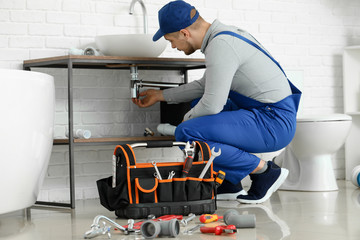A real estate professional who is a member of NAR is called a REALTOR(r). Education and credentials are important, but so is evaluating a Realtor’s work ethic, reputation and approach to business.
For example, when determining a sale price, a Realtor(r) will analyze comparable properties and current market trends to ensure the home is priced correctly. They also handle the extensive paperwork involved in real estate transactions. Contact Cochrane Realtors for professional help.
Real estate agents represent buyers and sellers throughout the home buying and selling process. They have the knowledge and expertise to help you find your dream home or sell your current home for the best possible price. A good realtor will have a strategy for marketing your property to attract the right buyers and close the deal as quickly as possible. Some realtors specialize in working with first-time homebuyers, while others work with investors and commercial clients. When interviewing a realtor, ask about their experience and the types of clients they typically serve.
A good realtor will know the market inside and out. They will stay on top of industry trends and share this information with their clients. They will also be able to explain any changes in the real estate market that could impact your decision to buy or sell your home.
When selling a home, Realtors will use a variety of strategies to promote your property to potential buyers. They will advertise your home in multiple channels, including online listings and social media. They will also host open houses and show your home to prospective buyers. In addition, a good Realtor will be able to negotiate with prospective buyers on your behalf and help you understand any offers that come in.
Before putting your home on the market, it’s important to get your house in shape. A Realtor can advise you on how to prepare your house for sale, such as staging the interior and sprucing up the curb appeal. They can also recommend professionals for inspections and repairs. They can also offer tips for getting the most out of your mortgage.
Once you’ve found your dream home or sold your existing one, a good Realtor will guide you through the closing process. They will review and sign all of the necessary documents to complete the transaction. They will also ensure that all parties involved in the transaction have fulfilled their obligations under the contract.
If you’re thinking of buying a home, talk with a local Realtor about the neighborhoods where you’re interested in exploring. They can provide information on schools, crime rates, and other factors that may influence your decision. They can also help you get preapproved for a loan so that you can make an offer with confidence.
Market Analysis
A real estate market analysis is an essential tool for buyers, sellers, and agents to make informed decisions about the local property market. By evaluating factors like supply and demand, economic indicators, and property locations, real estate market analysis helps individuals gain valuable insights that drive successful transactions and investment opportunities.
Performing a real estate market analysis can help you determine a fair price for a home or commercial property. The process involves comparing the value of similar properties in your area, taking into account their size, condition, and features. It also considers the property’s location, including its neighborhood and proximity to schools, parks, shopping centers, and other amenities.
You can perform a real estate market analysis on your own or with the help of a professional. However, it’s important to note that a market analysis is not an appraisal and should not be used as a substitute for one. A professional appraiser can provide more in-depth market data and a more accurate valuation of your property.
A thorough real estate market analysis will take into account current and historical data. It should also examine future trends that may impact the property market, such as population growth and migration patterns. Keeping abreast of these trends will help you anticipate shifts in the property market and adjust your strategies accordingly.
Conducting a real estate market analysis will require researching public and private sources, including newspaper articles, census and private databases, tax rolls, advertisements, and maps. You should also interview real estate brokers, owners, planners, and local officials to gather as much information as possible about the market. In addition, you should familiarize yourself with the political structure of your local government and understand how it supports or inhibits real estate development.
When buying a property, a market analysis will help you determine a fair offer price. It will also help you avoid overpaying by identifying comparable properties that have sold recently in your area. On the other hand, if you’re selling your property, a CMA will allow you to price it competitively and attract potential buyers.
Negotiation
The success of real estate transactions hinges on a negotiation process that satisfies both parties. Developing an effective negotiating strategy requires a blend of market knowledge, strategic thinking and interpersonal skills. A realtor who is highly skilled at these tactics can secure the best possible terms for clients and ensure a smooth closing.
Thorough Market Research
A successful real estate agent understands the current housing market and local trends. They also have a thorough understanding of comparable properties, or comps, to help them negotiate prices more effectively. Having this market insight gives them confidence and a solid base for their negotiations, allowing them to confidently stand by their offers.
Throughout the negotiating process, it is crucial for a real estate agent to listen to their client’s needs and desires. They must be able to communicate clearly and offer solutions that meet both parties’ goals. This involves listening to both sides of the story and presenting arguments in a logical manner, using data when possible.
Emotional Management
During a negotiation, it is common for people to become emotionally triggered and lose sight of their objectives. A real estate agent who stays calm, avoids attacking or insulting their counterpart and focuses on finding win-win solutions can achieve their goals more easily. This is especially important in high-pressure situations, such as when a buyer is faced with a seller who refuses to budge on a price or terms.
Effective real estate agents can anticipate challenges and unforeseen obstacles, helping them find quick solutions. They know how to leverage their experience, understand market conditions and nuances of contracts, and have relationships with lenders, home inspectors and other professionals they can call on for support.
A real estate agent who is a master at the art of negotiation can close more deals and build strong, lasting relationships. They can be the difference between a deal that falls apart and one that closes smoothly. Getting the right training can help aspiring real estate agents learn the negotiation techniques and strategies they need to excel. The Real Estate Negotiation Institute (RENI), powered by Colibri, offers two certification courses to teach new agents how to negotiate with both buyers and sellers.
Marketing
Realtors must effectively market themselves and their clients to build a robust client base. They must also keep up with technological advancements to stay relevant and competitive in their industry. They must also be able to work well in a team environment and maintain a balance between work and life commitments. In addition, Realtors must be able to navigate through challenging economic conditions.
Marketing for real estate involves forging a strong relationship with home buyers and sellers. This includes educating them on the process and helping them understand the benefits of each step. They also must be able to communicate effectively and negotiate prices that are fair to both parties. This requires excellent communication skills and a deep understanding of the local market.
In a crowded marketplace, Realtors need to stand out from the competition and differentiate themselves with their marketing strategies. This can be done by incorporating digital marketing into their overall strategy and using social media to reach a wider audience. They can also leverage SEO and content marketing to increase their visibility online. This will help them attract new clients and drive more business to their website.
A quality Realtor will always put their client’s interests first. They will not give a seller or buyer the wrong advice just to get a commission check. Whether they are advising a client on when to sell their home or buying their first condo, a Realtor will take their fiduciary duty seriously and consider what is best for the client’s long-term interest.
Marketing strategies for real estate include email campaigns, listing updates, virtual events, video production, and co-branding. They also need to focus on building relationships with lenders and other realtors. This can be done by hosting events for realtors and loan officers, becoming a continuous education provider, attending open houses, and hosting personal visits.
A good Realtor will be active on all social media platforms and use them to engage with potential clients. This can be done by posting testimonials from past clients, sharing valuable insights about the real estate market, and encouraging engagement on their posts. In addition, they will need to be able to quickly respond to inquiries and address concerns from prospective clients. This will ensure that clients feel valued and help them build trust in the brand.


 Residential plumbing covers all kinds of maintenance, repair and installation work related to water systems inside private homes and personal residences. These can include kitchens, bathrooms and laundry rooms as well as the pipes and drainage systems that connect them all together. Plumbers who specialize in residential services will often focus on fixing leaky faucets and toilets, unclogging drains and conducting inspections to make sure that water is flowing properly throughout a home’s structure.
Residential plumbing covers all kinds of maintenance, repair and installation work related to water systems inside private homes and personal residences. These can include kitchens, bathrooms and laundry rooms as well as the pipes and drainage systems that connect them all together. Plumbers who specialize in residential services will often focus on fixing leaky faucets and toilets, unclogging drains and conducting inspections to make sure that water is flowing properly throughout a home’s structure.